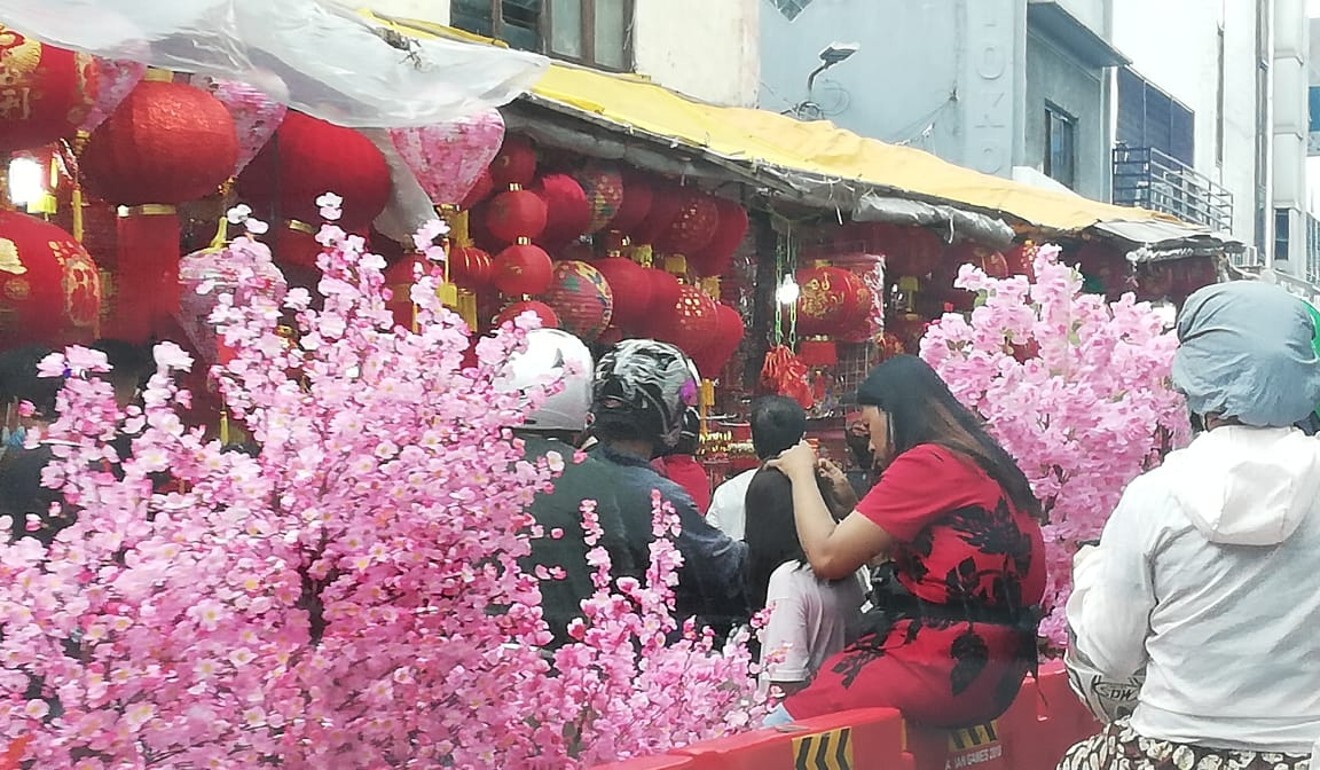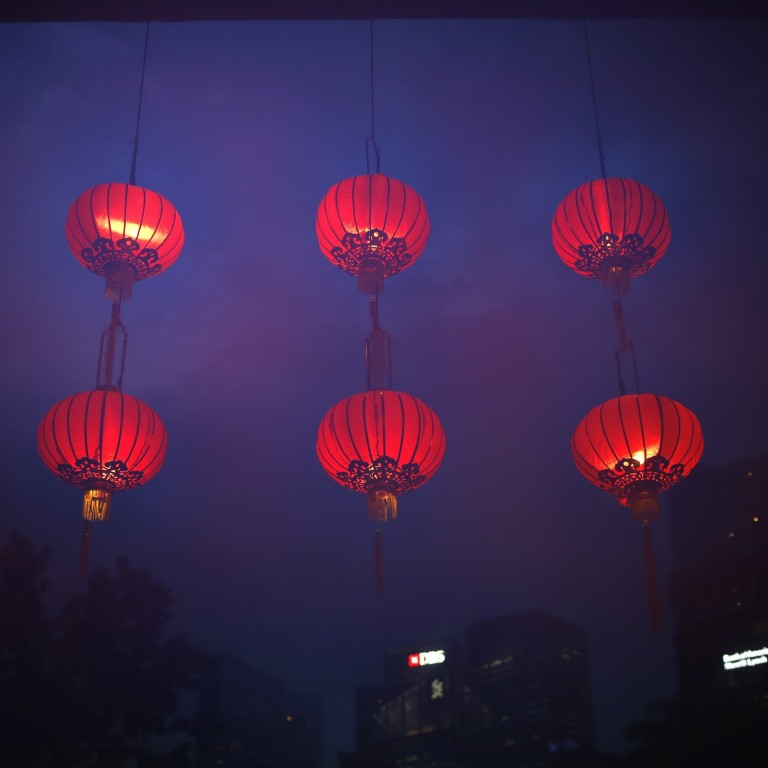
Lunar New Year: as coronavirus crashes the party, Southeast Asians find other ways to celebrate
- Covid-19 restrictions have put a spanner in the works for traditional festivities that emphasise family gatherings and communal meals
- But people in Southeast Asia say there are other ways to make the period special, even if the ‘prosperity toss’ needs to be toned down
It’s not just that restrictions on international travel mean visits from relatives overseas are out of the question – even small family gatherings (and over enthusiastic salad tossing) could be off the menu in countries where restrictions are the toughest.
Malaysian-Chinese see red over Lunar New Year reunion dinner policy flip-flop
SINGAPORE
While Singapore has been widely praised for its efforts to bring the virus under control – it has reported just six community infections over the past two weeks with the bulk of new cases imported by travellers (and just 238 of its 60,000 cases to date remain active) – authorities in the city state are not taking any chances.
Social distancing measures were tightened on January 26 to limit households to receiving just eight visitors a day. Meanwhile, people have been urged to visit no more than two households a day and to visit only family members during the Lunar New Year period.
The government has also reminded diners that face masks must be worn when not eating and has banned the “emphatic uttering of auspicious sayings” during the ritual of Lo Hei – or Prosperity Toss – during which diners shout auspicious phrases as they toss a raw fish salad with sweet dressing into the air.
Some Singaporeans have responded to the restrictions by splitting their family members into groups of eight that will visit on different days.
However, Patsy Tan, a retired publishing industry executive in her 60s, will be stricter. Apart from a lunch with her siblings – at which no partners or children will be allowed since that would bust the cap of eight – and a visit to her mother-in-law’s home, Tan will not meet anyone else.
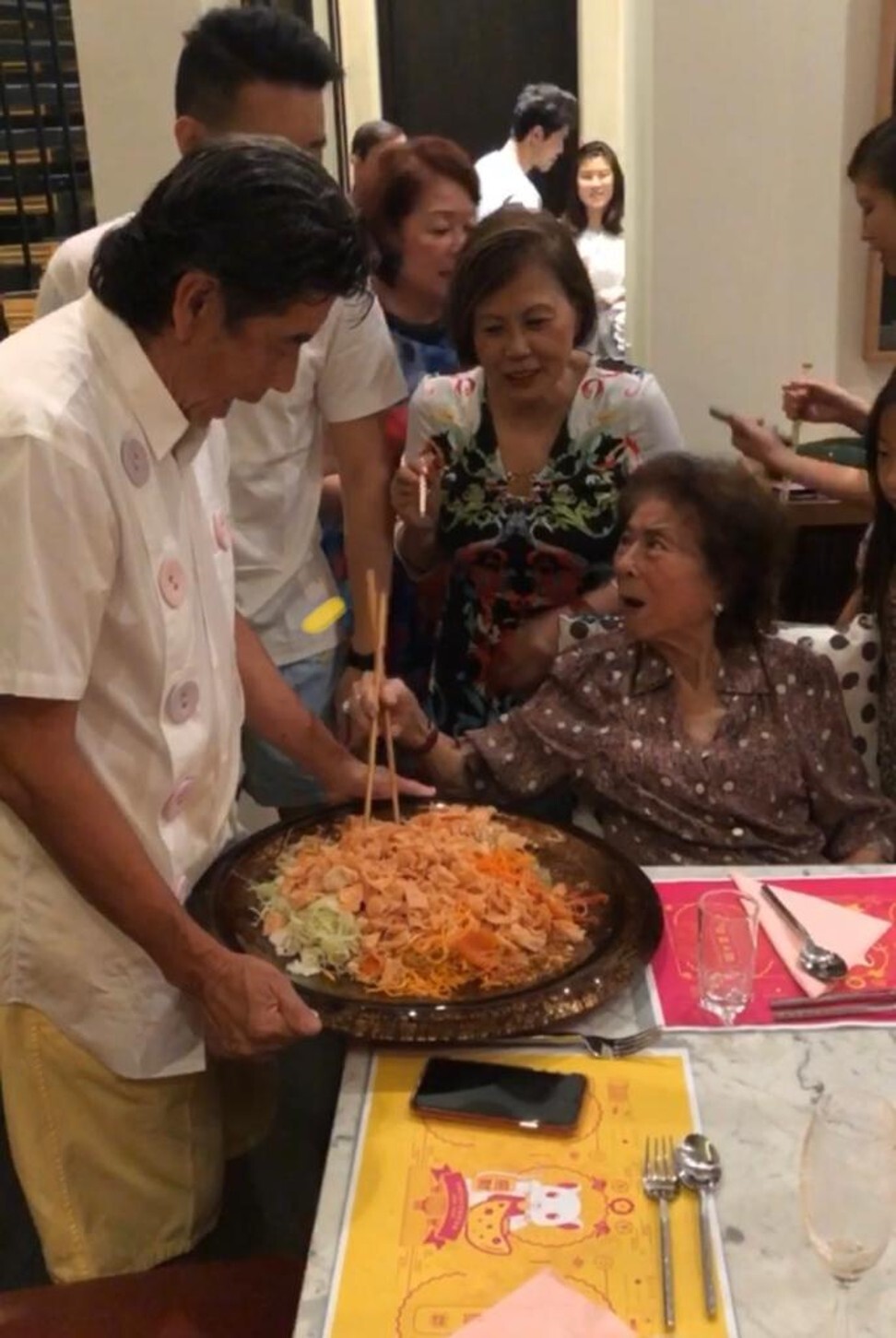
“There’s no more visiting my aunties and all that, I’ve told them not to expect a visit,” she said.
Instead, Tan has spent the past two weeks visiting her extended family and spending one-on-one time with her aunties. This had an upside, Tan said, as it allowed for more meaningful and personal interactions than traditional, more crowded gatherings.
She has also shrunk the size of her reunion dinner. Instead of having that at her brother-in-law’s home with all 18 members of the extended family – something Tan has done for the past 40 years – she will be having a simple home cooked meal with just her household.
Tan, her daughter and her son-in-law will on Thursday night sit down to a dinner of soup and eight treasure rice, and a Lo Hei without the shouting.
“Chinese New Year is always about bonding with the family, so for me, this year is really about the immediate family. It will be a time for who matters the most,” she said.
Fewer moons at Lunar New Year as coronavirus hits Japan’s Naked Man Festival
VIETNAM
She had hoped to break that streak this year, but will be unable to. Vietnam’s latest outbreak, which started at the end of January, has already spread to 13 provinces and cities including her hometown.
“The downside of not spending Tet with my family is having to take care of myself. After all, Tet is supposed to make you feel warm,” said the magazine writer and editor, 26, who lives in Ho Chi Minh City.
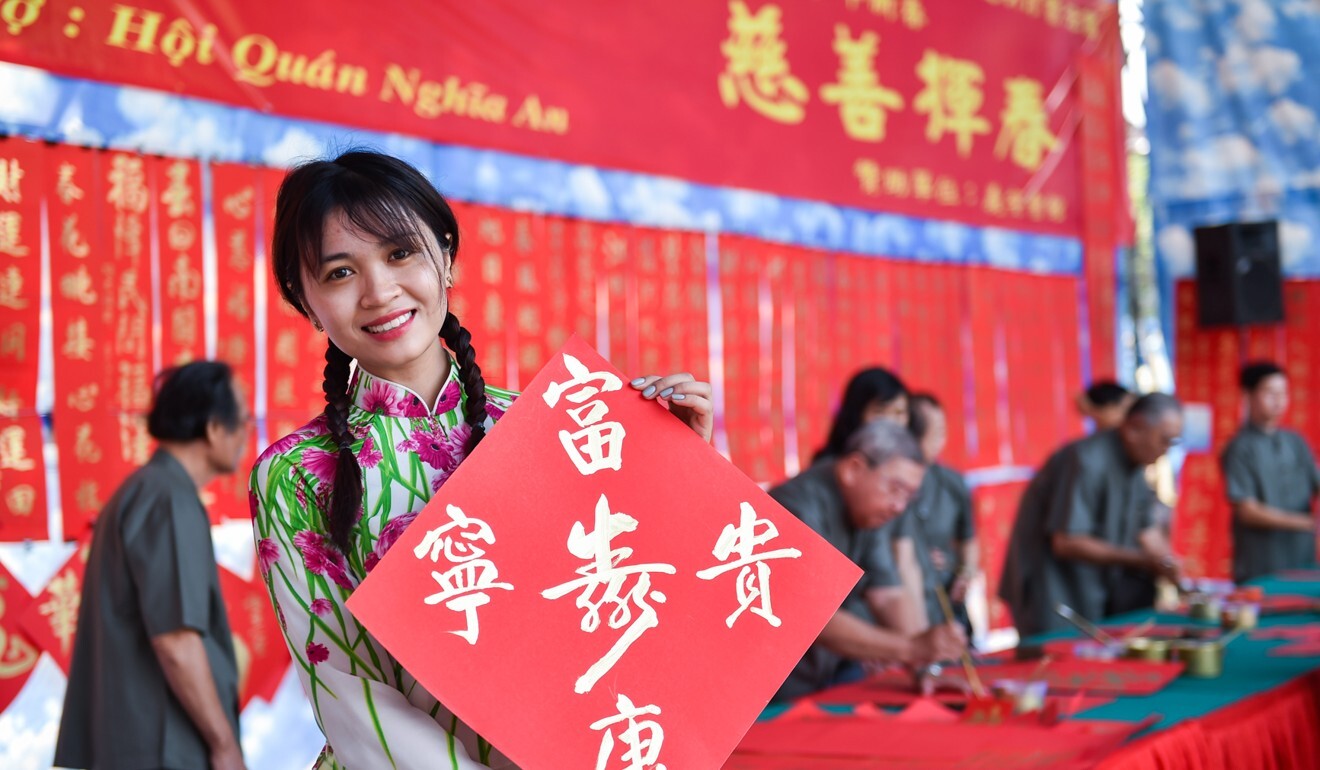
Most of her family live in the northern province of Quang Ninh, one of the localities where the government has imposed travel restrictions and put several towns and communes under lockdown.
Whenever she has time, Van checks that her immediate family and relatives are safe and have not been exposed to anyone with the virus.
Vietnam, which had been free from community transmissions for nearly two months until this recent outbreak, has been ramping up its contact-tracing and mass-testing efforts, which until now have made the country one of the safest places in the world in terms of the Covid-19 pandemic.
Still, the fresh wave has caused concern. It has already infected 483 people, accounting for about a fifth of the country’s cases so far, and authorities have warned the public to prepare for 30,000 cases.
Just 35 people in the country have died from the virus, one of the lowest rates in the world.
Van realised her plans for a family Tet wouldn’t work out when the airport in her home province was shut down. While disappointed, she said she felt prepared given she had missed the four previous years.
She will turn to her memories for comfort instead.
“I love the feeling of the last day of the year’s afternoon,” she said. “At that moment everyone hopes to leave the old year behind while really taking their time to have the last meal of the year.”
Like many other Vietnamese, particularly in the North, she is excited about watching Tao Quan Nam Nay, a comedy show that airs on national television every Tet.
Van, who was raised primarily by her grandmother, said she misses her the most and reminiscences about watching the show with her.
“Now when I miss Tet, I think about lying [in bed] watching Tao Quan with grandma,” she said.
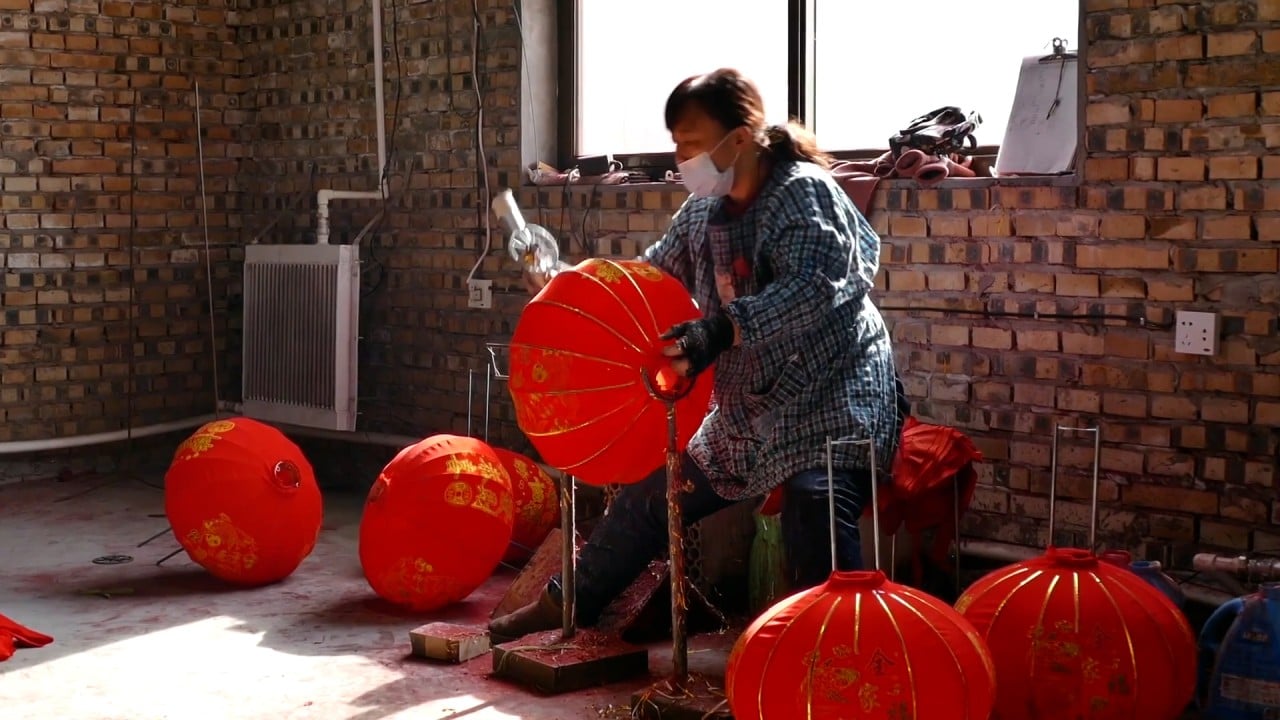
02:07
China’s ‘Red Lantern Village’ ramps up production ahead of Lunar New Year
THAILAND
When it comes to flamboyant Lunar New Year celebrations, few destinations can compare to the Thai island of Phuket.
Parades, beauty pageants, concerts, food festivals and night bazaars are all traditional staples for the festive season, as the island caters to the Chinese tourists who make up the country’s largest group of foreign visitors.
The island is a unique Lunar New Year destination for both Thais and foreigners due to its community of Peranakans, who are descended from the Chinese Hoklo settlers in peninsula Malaysia and the Indonesian archipelago.
However, this year, things will be very different. The coronavirus has sapped the city of its tourism lifeline, leaving locals feeling flat.
Amnuaywit, the owner of a 40 room hotel on Patong beach, said beaches and the city centre had been filled with local and foreign tourists during last year’s celebrations, when the outbreak of the virus was still in its infancy. Activity grinded to a halt in April, when Thailand closed its airspace as a measure to keep out the virus.
Phuket, which received 14.5 million visitors – both Thai and foreigners – in 2019, still had not recovered, he said. In 2020, Phuket had just 4 million visitors.
“I focus only on surviving for now,” he said. “Last year, there were so many people as there were festivities both on the beach and in town. But since last April, even Thais have stopped coming.
“Many workers in the tourism industry have moved to find work elsewhere, leaving Phuket quiet like it has never been.”
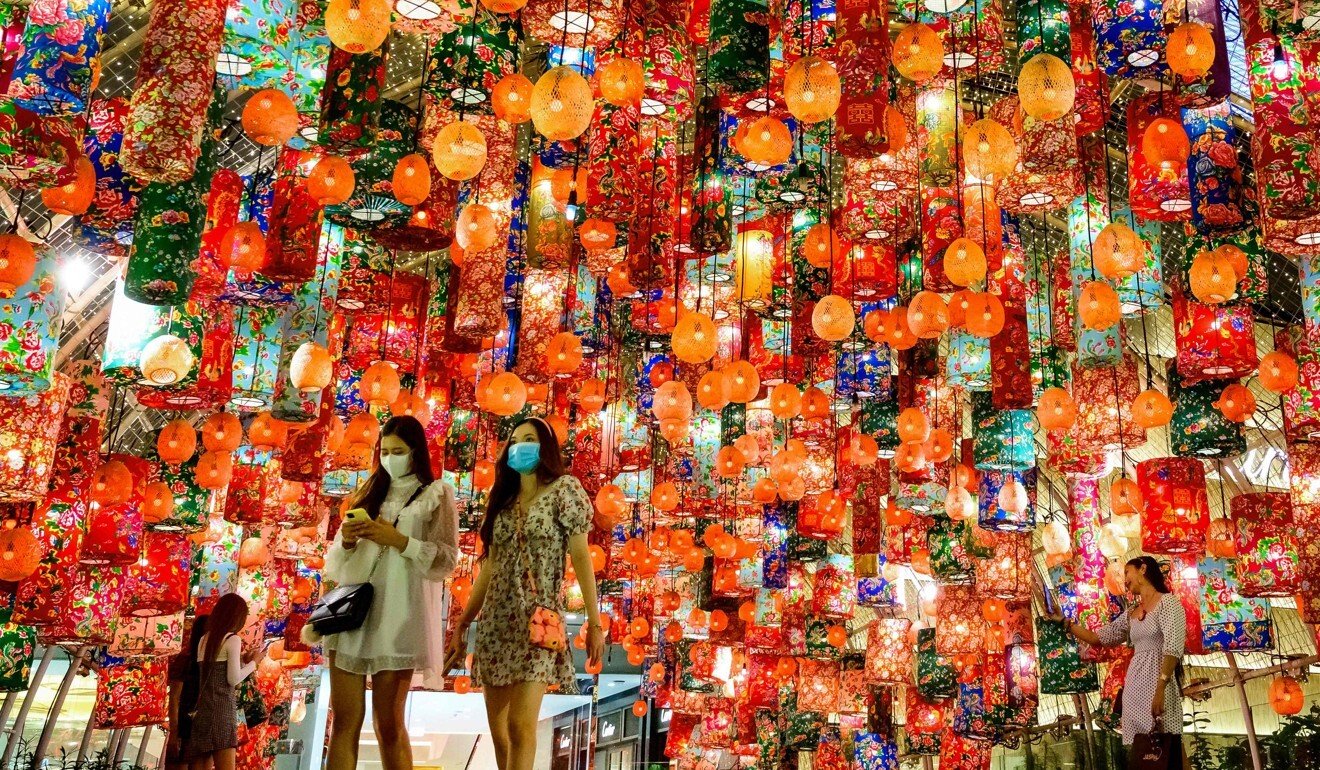
Last year, Thailand had recorded about 6,800 cases, but a second wave of infection that began in December has pushed that figure above 23,000.
Despite the increase in cases, in an effort to promote Lunar New Year tourism Phuket last month cancelled the two-week quarantine requirement for visitors from other Thai provinces including Bangkok.
However, with the cancellation of official celebrations previously set for February 19-21, any remaining celebrations are expected to be low profile.
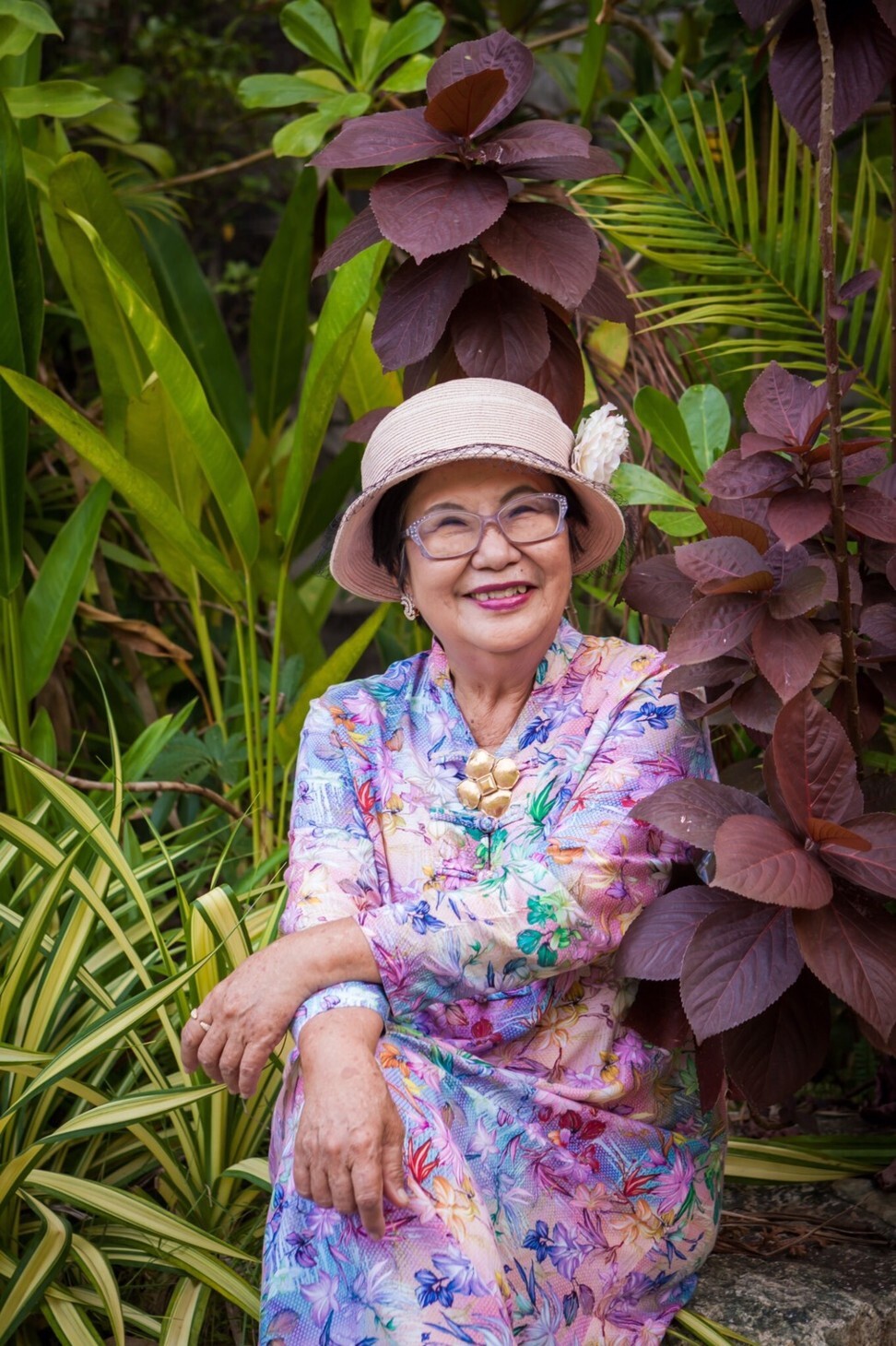
Ironically, more muted proceedings might be more aligned with the province’s cultural roots than the mega events Phuket is famed for.
“The Hoklo people are not known to favour large-scale celebrations,” said Pranee Sakulpipatana, a Phuket-based writer and historian of Hoklo descent. “We still hold prayers at home and meet relatives, so to me it is not so different from what we have always done,” she said.
Angry Malaysians slam ‘confusing’ Lunar New Year social distancing rules
MALAYSIA
With Malaysia having restricted travel and limited the size of new year gatherings as part of its national lockdown, Erica Cheong will be having a quieter celebration than usual.
Inter-district and interstate travel are banned under the measures, but the 32-year-old part-time caterer has found another way to fill her time: updating the recipe for her festive Yee Sang – the Malaysian name for the Prosperity Toss salad.
“We wanted a fresher take on the Yee Sang; and to highlight as much Malaysian produce as possible. We’ve kept some of the classics like jicama, Ipoh pomelo, kaffir lime leaves, carrots, coriander; and we’ve added more playful elements like tangerines, pea sprouts, blueberries and dragon fruit which turns everything a vibrant magenta when tossed together!”
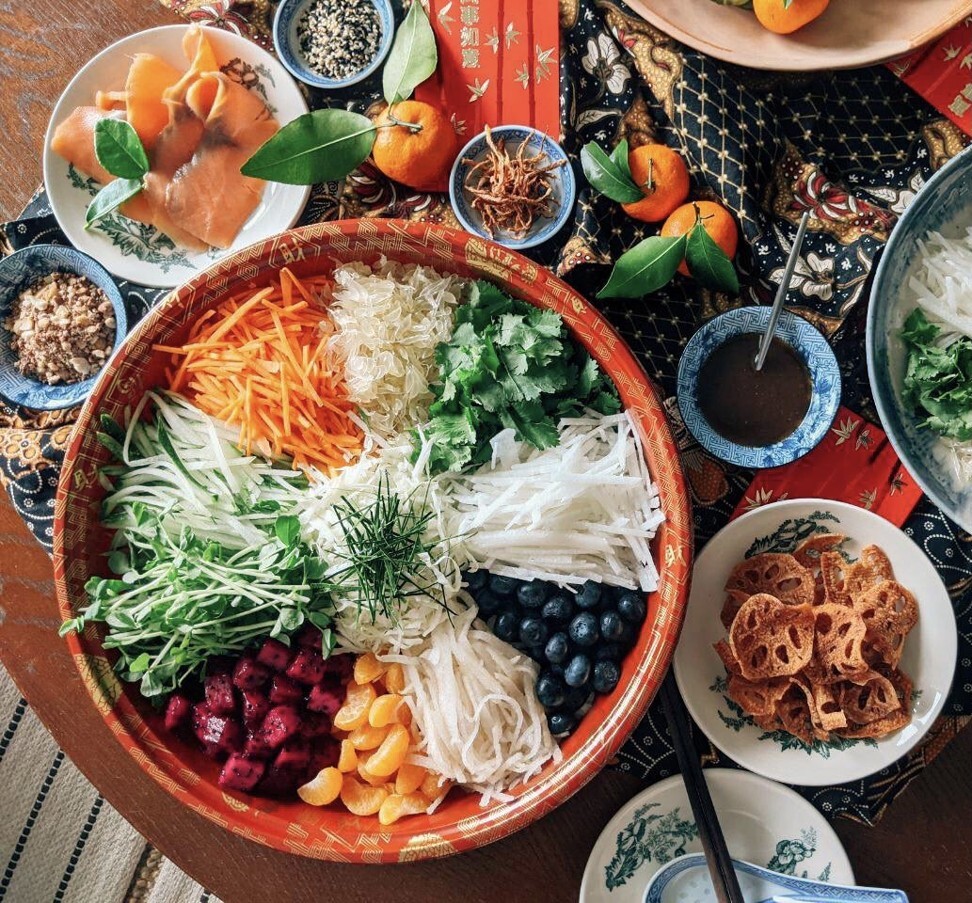
The Embun Eats co-founder also includes crunchy home-made lotus root chips, toasted black and white sesame seeds, peanuts candied in gula Melaka (coconut palm sugar), soy sauce, and a plum and roselle sauce.
However, she will be skipping the raw fish for safety reasons and will include smoked salmon instead.
Cheong said sourcing the ingredients was more challenging this year due to travel and supply chain disruptions, but her business managed to connect with producers remotely instead.
Malaysia recently loosened its restrictions on Lunar New Year festivities, allowing reunion dinners to take place with up to fifteen people as long as all diners reside within 10km of the host.
The government had initially barred Malaysians from visiting people outside their households, but made the concession after widespread resistance.
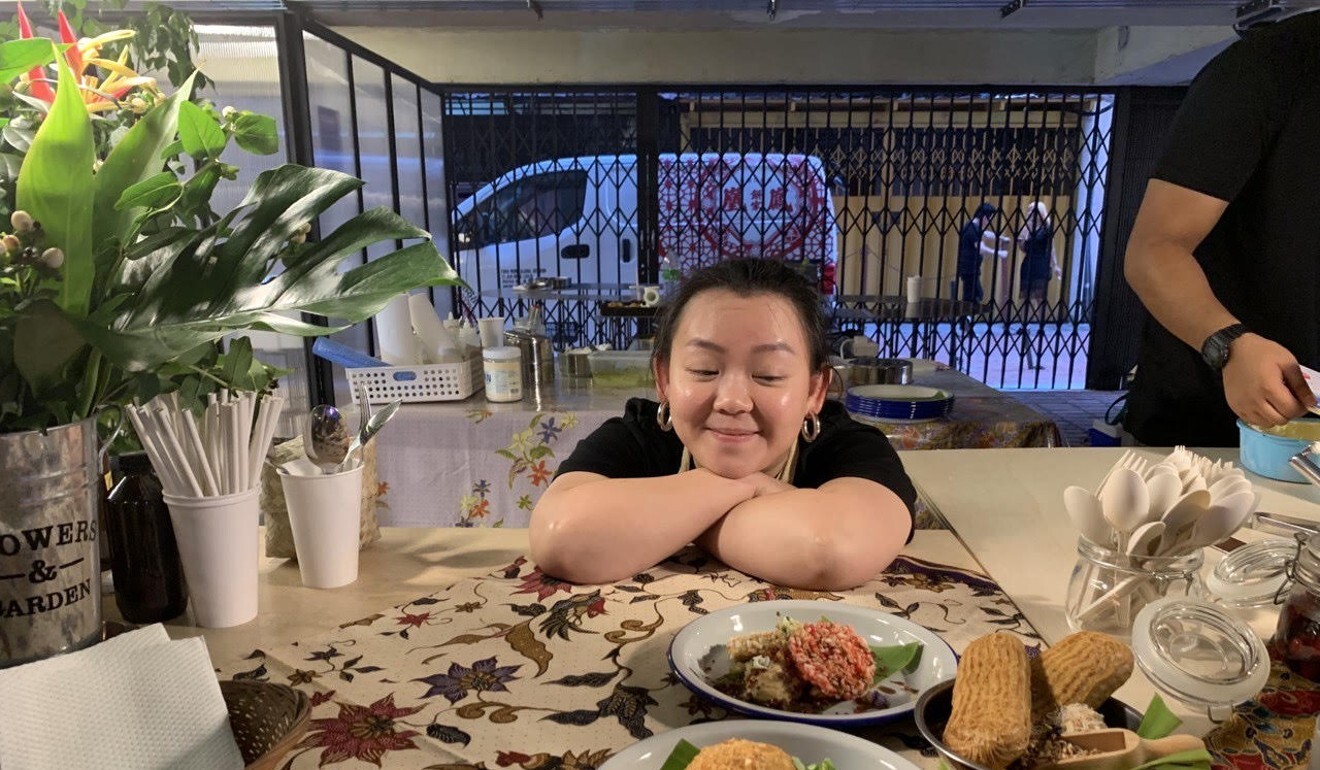
Some Malaysians, however, feel the original rules were safer given the high number of cases in the country, which is recording thousands of infections daily and has passed 245,000 in total.
Lawyer Ho Wen Hui, who is of Chinese descent, said the community was “more offended by the fact that there is a lack of understanding of the Chinese culture by the government rather than the fact that we won’t be able to celebrate like the previous years”.
“However, allowing reunion dinners with family members living in other places will heighten the risks for our elderly,” she said.
Meanwhile, health policies specialist Dr Khor Swee Kheng warned that “standard operating procedures” for festivals in multiracial and multi-religious Malaysia must always consider public health and national harmony or there would be problems in future.
“The recent backlash about inconsistent rules for the Lunar New Year will be repeated for other festivals in the coming years of Covid-19, unless the government provides a set of long-term organising principles. These organising principles must be science-based and evidence-based. Otherwise, the government will make reactive decisions that are easily influenced by lobbyists or pressure groups.”
INDONESIA
In Chinese tradition, the second day of the Lunar New Year is when married daughters return home to visit their parents, bringing with them gifts and lai see packets.
For Indonesian Marina Basuki, 62, it has been the “second day” of Lunar New Year for the past five years.
Marina is married to a Malaysian and previously lived in Kuala Lumpur. When her mother fell ill, she returned home to visit and nurse her until she passed away in 2017. Before Marina could return to Kuala Lumpur, her father fell ill and she stayed back to look after him. As she cared for her father, her husband commuted from Kuala Lumpur to Jakarta to visit her.
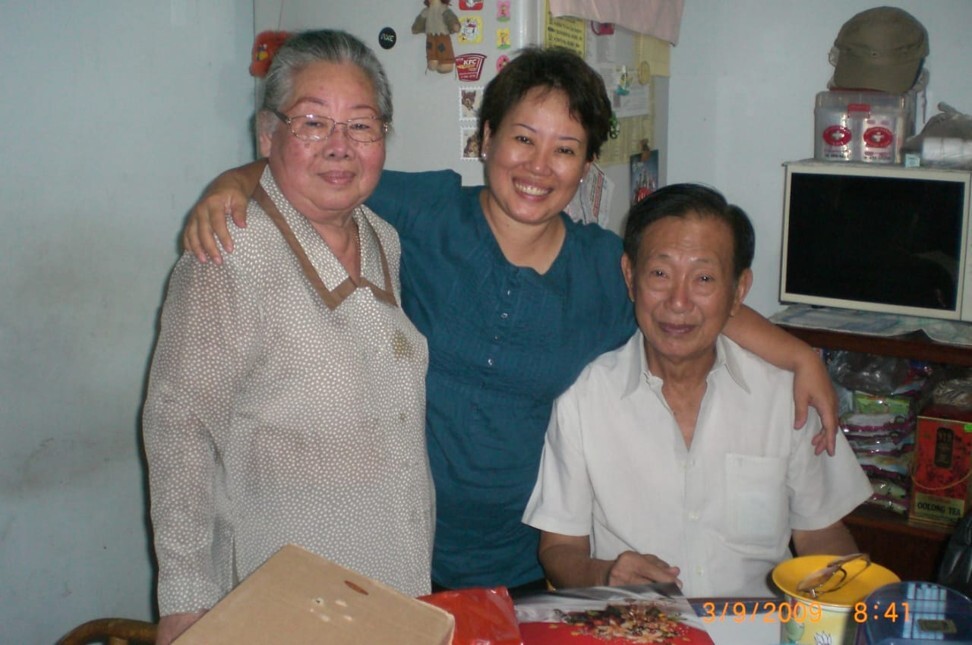
When her father passed away in December 2019, her husband flew down for the funeral. That was the last time she saw her spouse as the outbreak of the coronavirus last year prompted the cancellation of flights and the closing of borders between the two countries.
Marina, like thousands of Indonesians, now finds herself separated from loved ones at a time of year that leans heavily on family ties.
“So for this year, I will be spending Chinese New Year alone. I live by myself in an apartment in Jakarta,” said Marina, who has three younger brothers and runs a small business selling home-cooked local dishes.
“And yes, of course I miss my husband. I will be chatting with him on New Year’s day via Whatsapp.”
In the past, Marina and her brothers would gather at their parents’ home for a huge reunion dinner on New Year’s eve and subsequent celebrations.
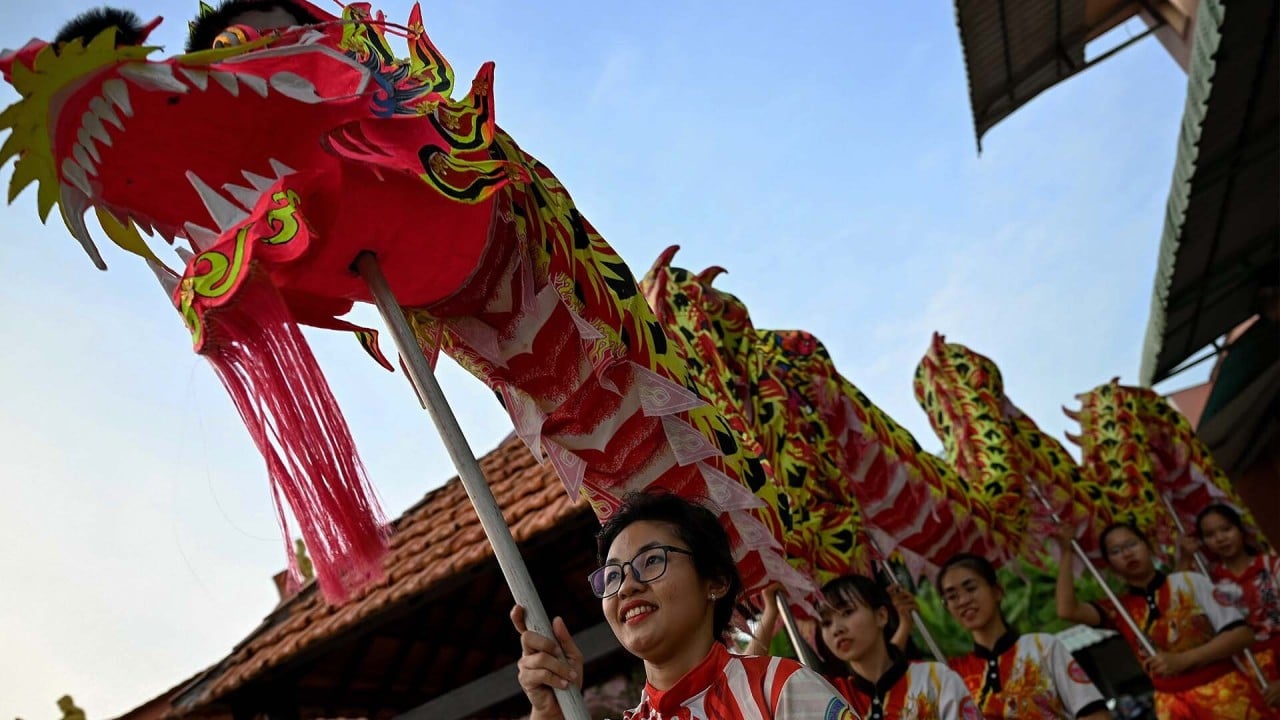
03:02
Young female dragon dancers in Vietnam challenge gender roles ahead of Lunar New Year
Like most Chinese daughters, for whom filial piety is drummed into their psyche, Marina shrugs off being separated from her husband to care for her parents.
“I am lucky my husband accepts me returning home to look after my parents. I don’t regret looking after them. It was my duty to do what I could for them,” she said.
With Indonesia’s Covid-19 infections passing 1 million and deaths nearing 30,000, the government has extended movement restrictions – which vary regionally – until February 22. Under the latest rules, workers may spend half their working hours in the office and retail business can stay open until 9pm.
On the first day of New Year, Marina plans to wake up early and go to the temple to offer prayers as there is a limited attendance quota.
“I will say my prayers and return home. This year, New Year’s Day will just be like any other day,” said Marina.
